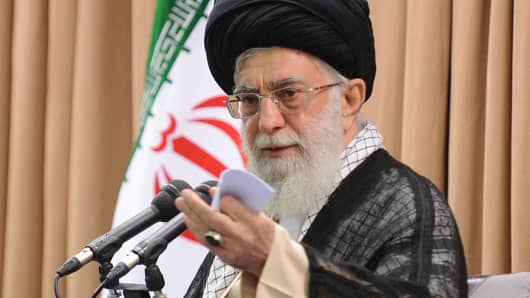The House is set to vote on a controversial bill already passed by the Senate that will ensure a role to Congress in any nuclear talks between President Obama, Iran and half a dozen world powers. In Congress, the bill is seen as reclaiming of congressional authority over foreign policy, after years of presidential domination.
House Speaker John Boehner argued that a bad agreement could result in a "nuclear-armed Iran, set off a regional nuclear arms race, and strengthen and legitimize the government of Iran."
Unfortunately, an adverse policy stance by the Congress could provoke a similar situation. Iranian leader Ayatollah Ali Khamenei saw the bill as a sign of "disintegrating" U.S. foreign policy. In Tehran, it is seen as paving way for Republican senators to scrap any nuclear deal once President Obama's term ends.
Read MoreHere's why Iran and Iraq should worry OPEC
The steep differences about the Iran policy between the Republican Congress and the Obama White House have potential to further destabilize the Middle East.
In April, the U.S., the UK, France, Germany, Russia and China reached a mutual understanding with Iran in Lausanne. The "Joint Comprehensive Plan of Action" is widely seen as a prelude to a more comprehensive deal.
The critical point in the Lausanne statement involves lifting of the sanctions imposed on Iran presumably by June 30. However, as international support for the deal has increased, efforts to undermine it have escalated.
After three decades of international isolation, Iran does not need more sanctions, but integration, investment and growth.
Read More'Inappropriate' ship seizure may hit Iran relations
While the proponents of sanctions speak in the name of democracy and economic development, the net effect has been the reverse. The sanctions diminish the prospects of Iran's business sector, which is vital to modernization, and its nascent middle class, which is crucial to democratization.
There are three potential outcomes to nuclear talks with Iran.
In the progress scenario, the talks would result in a final deal in Lausanne, a gradual phased-out of sanctions but burdensome compliance requirements. That would mean slow progress in 2015 and 2016.
In the case of no deal, Iran's oil production would remain weak, which would work against Iran's energy clients in the emerging world, particularly in Asia. Despite its adverse impact on global growth prospects, a no-deal scenario would benefit those who would gain from Brent crude's rebound to $65 by the end of 2015 and significantly higher a year later.
Read MoreIt's wrong to help Iran but not US oil producers: Hamm
There is a third, albeit unlikely, scenario: In a rapid-progress case, the sanctions would be phased out swiftly, which would push investment into the oil sector. By reducing Brent oil prices to below $50 per barrel, it would benefit consumer welfare worldwide, especially in emerging Asia which is amid an energy-intensive development phase.
However, this scenario would force new adjustments in non-OPEC producers (particularly the U.S.), which is opposed by many suppliers.
Even if Congress rejects the White House's final nuclear deal with Tehran, President Obama could resort to executive action to offer substantial sanctions relief on his own, in cooperation with EU and UN sanctions relief.
But that would be only a temporary measure.
What's really needed in Lausanne is great restraint to reach the right outcome and to ensure it prevails — even after the next U.S. elections.
Commentary by Dan Steinbock, research director of International Business at India China and America Institute (USA), visiting fellow at Shanghai Institutes for International Studies (China) and in the EU-Center (Singapore). See also www.differencegroup.net.


